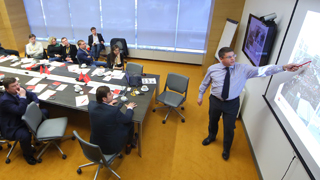
Dialog społeczny
Dialog społeczny można zdefiniować jako negocjacje, konsultacje, wspólne działania, dyskusje i wymianę informacji dotyczących pracodawców i pracowników. Dobrze funkcjonujący dialog społeczny jest kluczowym narzędziem kształtującym warunki pracy, obejmującym wiele podmiotów działających na różnych szczeblach. Zapewnia równowagę pomiędzy interesami pracowników i pracodawców, sprzyjając zarówno konkurencyjności gospodarczej, jak i spójności społecznej.
Prowadzone ostatnio na poziomie UE debaty polityczne uwydatniły fakt, że pojawienie się – zwłaszcza od czasu kryzysu w 2008 r. – nowych dyskusji na temat sprawiedliwości społecznej, demokracji, jakości pracy i nowych modeli stosunków pracy podważało tradycyjne funkcjonowanie systemów stosunków pracy i dialogu społecznego.
Trzydzieści lat po historycznej inauguracji europejskiego dialogu społecznego w Val Duchesse w Brukseli Komisja ponownie rozpoczęła proces dialogu społecznego, organizując 5 marca 2015 r. spotkanie na wysokim szczeblu, które zgromadziło przedstawicieli organizacji partnerów społecznych z całej Europy. Europejski dialog społeczny jest instrumentem polityki społecznej UE, włączonym bezpośrednio w proces kształtowania unijnego prawa pracy i polityk w tym obszarze.
- Wydarzenie zorganizowane przez Komisję Europejską: Nowy początek dla dialogu społecznego
- Artykuł na blogu Eurofound: From Val Duchesse to Riga: how to relaunch social dialogue? (Z Val Duchesse do Rygi: jak wznowić dialog społeczny?)
















